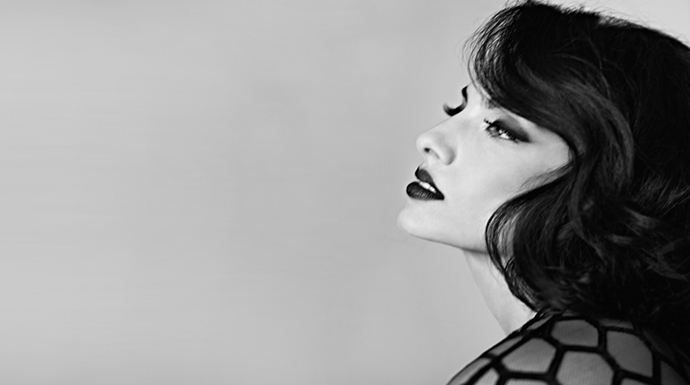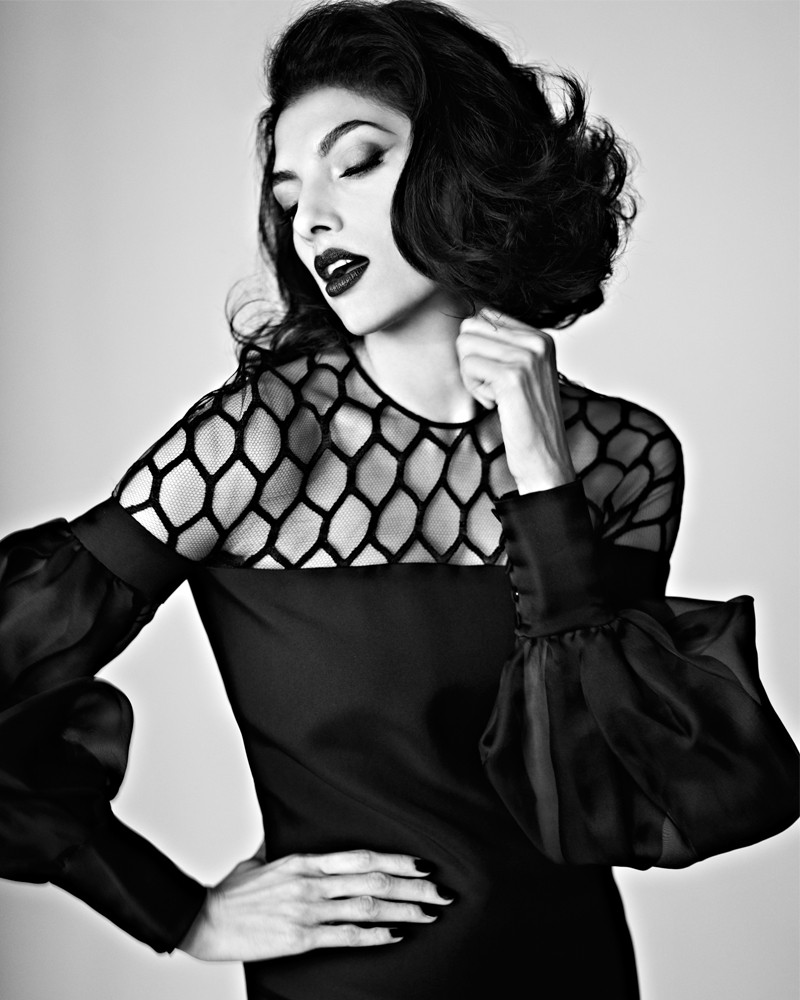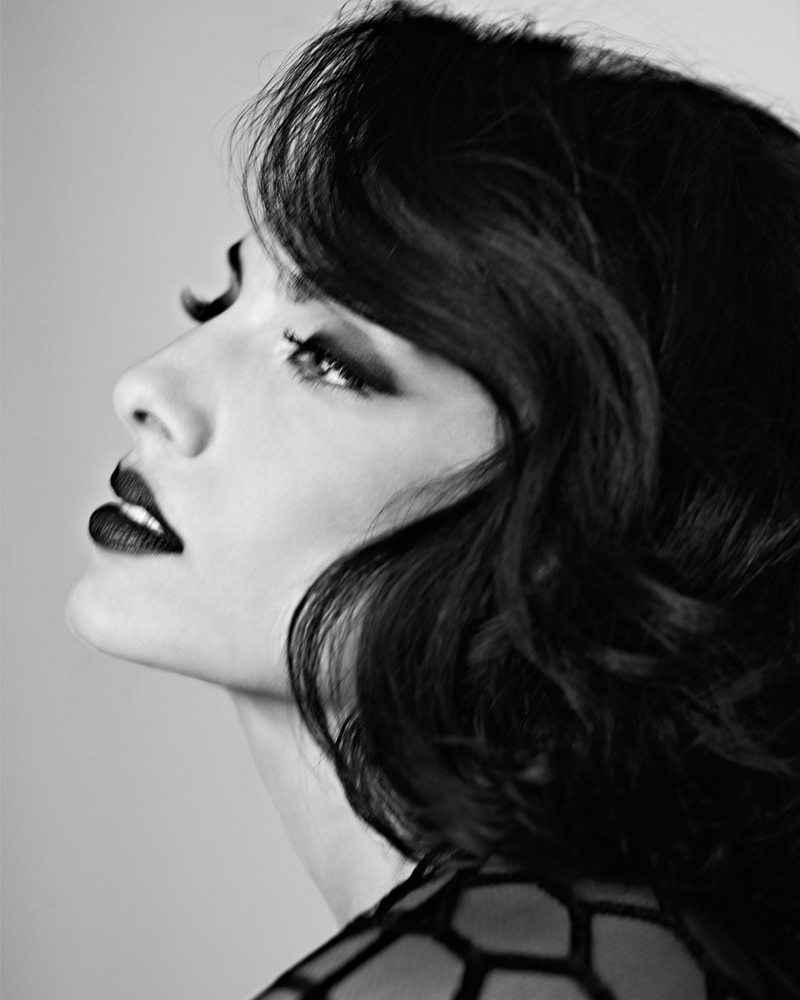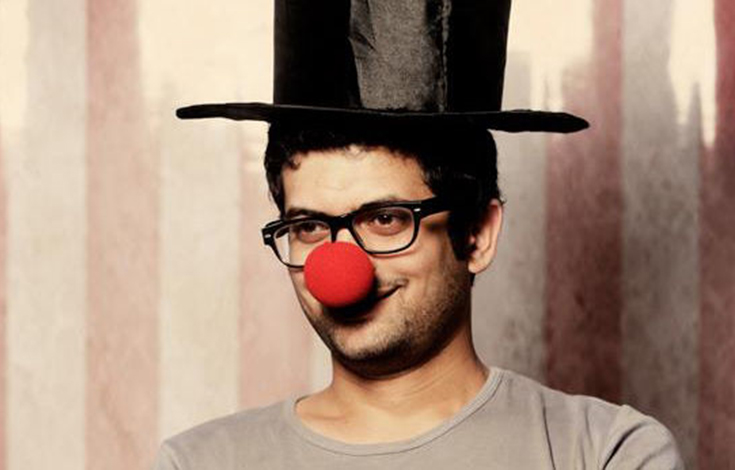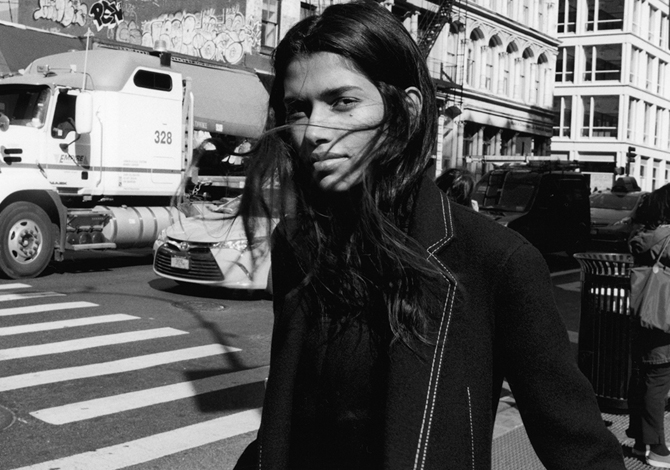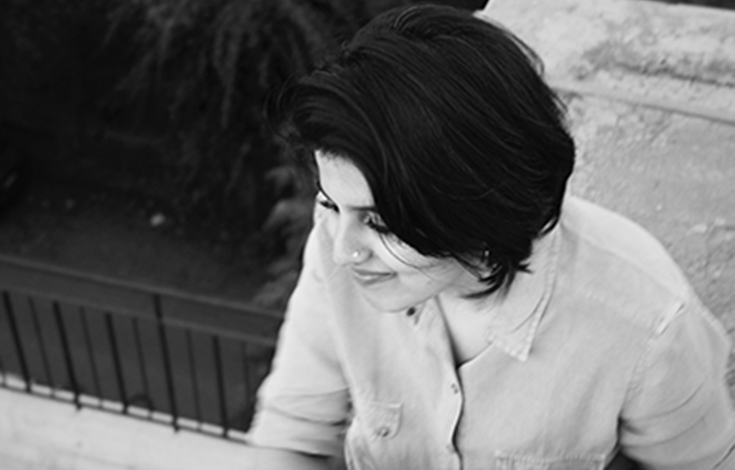Burman We are always trying for the moment, to get the shots that capture or crystallize the essence of our vision. It’s a matter of getting in sync with the team and most importantly the model because when you’re in sync, everything begins to flow. Whether it’s sharing music references, art, books – building that connection helps get into the zone and then it becomes quite easy. Also some people are just a pleasure to work with; Indrani, you’re one of them.
Indrani Thank you! And yes – sometimes you have a good connection with the photographer and that makes it all the more enjoyable. It’s definitely a matter of trust for me going into a shoot. I prefer a brief or a visual reference from the photographer or the art director because it helps me to get an idea about the feel of the character. And when it’s action time, it’s my interpretation of what I’ve understood of it. Over the years, my experience gets me closer to ‘the zone’ sooner.
Burman Today, technology allows everyone to view the images instantly, as you shoot. Prabuddha never used to reveal his images to anyone and I’m slowly trying to move towards that, to keep it to myself a little more. Everyone has an idea of what the image is supposed to look like so I have to be careful not to let too many opinions influence my own. Sometimes I lie and say that I don’t have the cord because I don’t want everyone to see the shots just yet.
Indrani Yes, a lot has changed since I began working. You had to trust the photographer a lot more before because you couldn’t see the images, but now even I want to know immediately if the image is ‘right’. That being said, although digital has its many advantages, a lot of my favourites are from the Transparency Film era. If I remember correctly, one roll of film could make 10 shots. It took about half a day at the lab to develop so we would shoot extensively, even if one felt that ‘we’ve got it’ for a ‘just in case’. The anticipation of the developed film and then peering over it with an eyepiece with the team had its own charm.
Burman Back in the day, the photographer used to choose the team, who he was comfortable with and who was right for his vision. Now because of budgets, clients often choose them. It’s nice to work with a team you know and trust, it makes it that much easier. At the end of the day, the client is going to blame the photographer if they don’t like the images, but I tend not to think about it like that – more like a game of soccer where you just go out and play and give it your best.
Indrani To take the analogy further, you know you’re going out with your team, that they are also on the field with you so there’s comfort in that. I like relying on the team – hair, makeup, photographer – to guide me. I definitely take the lead from the photographer because I rely on his feedback to know if what I am trying is working or not.
Burman It’s about getting a good energy going and that comes from how you’re reacting to the people with you. Sometimes you’re on a shoot and you can’t wait to be done and leave – that’s not a good feeling at all. But at other times, when it’s working, there are a couple of shots that you are sure of and you know when you’re done.
Indrani I have quite a few favourite images, and most of them are with photographers who are dear friends, and we have worked together extensively. I would imagine that translates into the screen.
Indrani I don’t mind post production much, especially for a beauty campaign. Fuller lashes or a touch-up here and there that enhances my complexion doesn’t bother me.
Burman When I’m shooting, I know I’ve got the shot factoring the changes editing will make, though I like to avoid post-production changes as much as possible. I actually don’t like the idea at all and I believe the less post-production work that is needed, the more effort was put in during the shoot. For me, the final shot has to be natural for it to be memorable. Some of the best photographers only changed brightness, contrast and exposure and left everything else untouched … I admire that simplicity.

